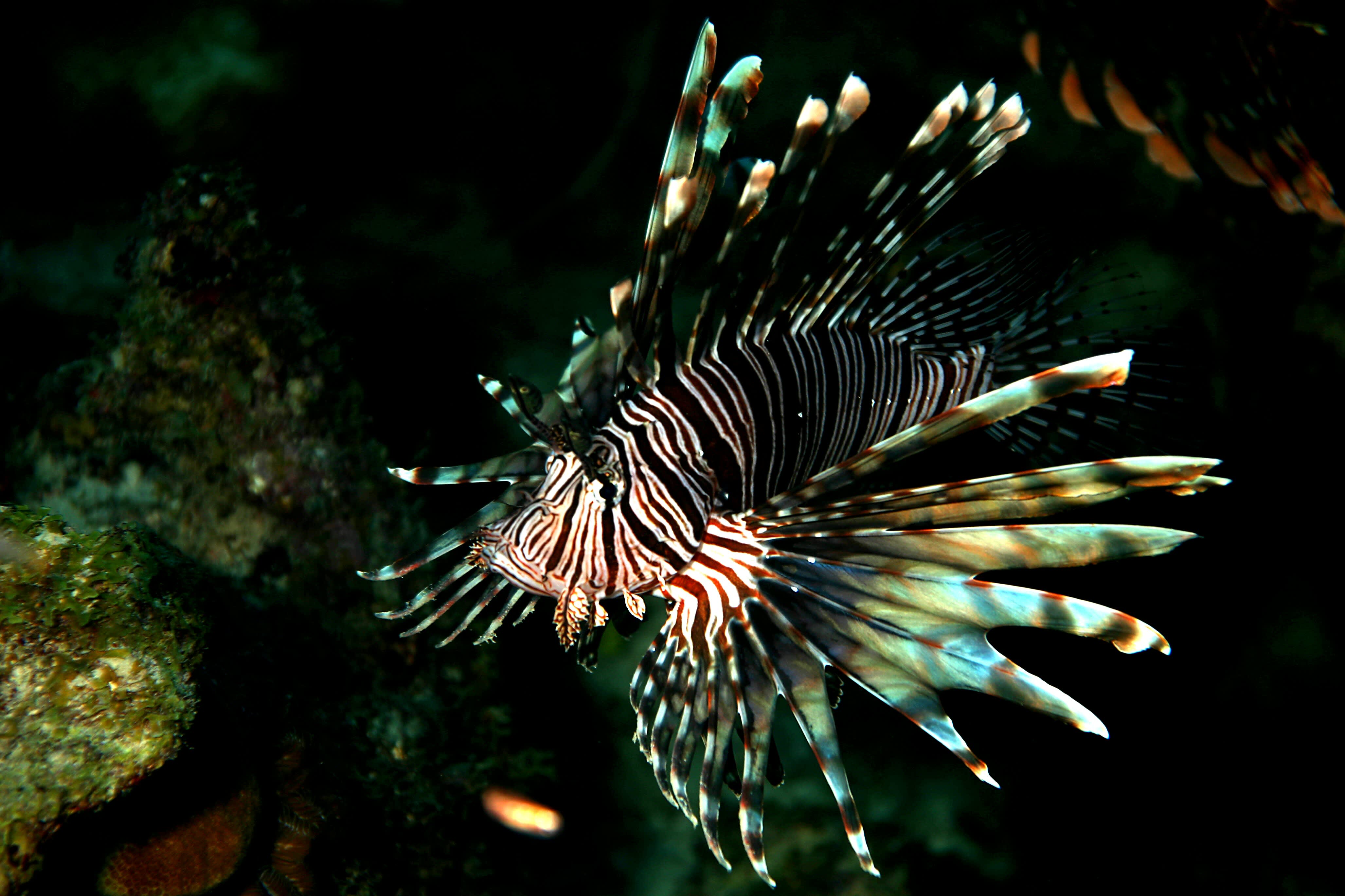Invasive Lionfish Fillets Fuel Conservation Campaign in Jamaica
OutdoorHub Reporters 04.15.14

Sometimes, the best way to control an invasive species is to simply eat them. That is the approach that Jamaica has taken with lionfish, an invasive species that in the span of a few short decades established a significant presence in the Caribbean and off the East Coast of the United States. With a lack of natural predators in these areas, lionfish populations are booming, which in turn causes a decrease in the small fish and crustaceans that they prey on. The loss of these species can be devastating to reef ecosystems. However, the Associated Press reported that Jamaica recently counted a 66 percent drop in lionfish sightings within shallow coastal waters.
This drastic change came after a four-year national campaign to raise awareness of the colorful predator. The greatest success was in promoting lionfish as a food source. Previously, fishermen avoided the dangerous lionfish for their painful stings and the low demand they generated at the market. Now, lionfish fillets are quick sellers.
“After learning how to handle them, the fishermen have definitely been going after them harder, especially spear fishermen. I believe persons here have caught on to the whole idea of consuming them,” marine biologist Dayne Buddo told the AP.
Biologists are calling Jamaica one of the first major successes in controlling the invasive fish. Earlier this year, a study by Oregon State University researchers found that the damage done by lionfish to parts of the Atlantic is irreversible. According to their research, if the lionfish population is reduced by 75 to 95 percent, native species decimated by the fish will rapidly return. The study was carried out near Eleuthera Island in the Bahamas where researchers created safe havens for native species by removing lionfish. One by one, the invasive fish were netted by biologists, resulting in a boom of prey fish numbers.
“We don’t have to catch every lionfish to do it,” said marine ecologist Stephanie Green.
Four years ago, the US National Oceanic and Atmospheric Administration (NOAA) also launched a campaign urging East Coast residents to chow down on the invasive fish, although Americans seem to be more hesitant to sample the new fare. In addition to being comparatively hard to catch, lionfish can also be difficult to prepare. According to NBC News, lionfish may contain detectable amounts of ciguatoxin, which can cause food poisoning. Some ecologists say the toxin is common in reef fish and is not a real concern. Ciguatoxin levels are also high in reef predators such as amberjack and grouper.
Lionfish is growing more popular among seafood lovers, especially with chefs who value the fish’s flexibility. At $16 a pound, the fish is comparatively expensive, but diners get the satisfaction of taking a bite out of an ecological problem.

